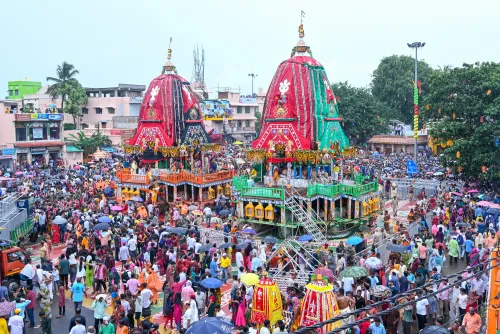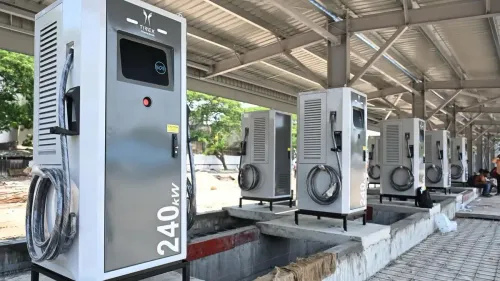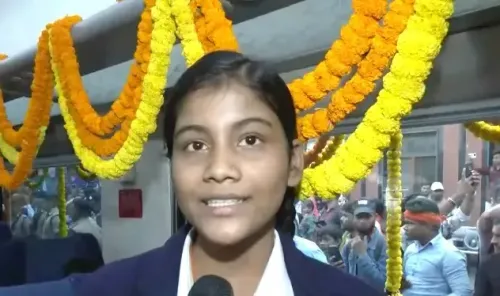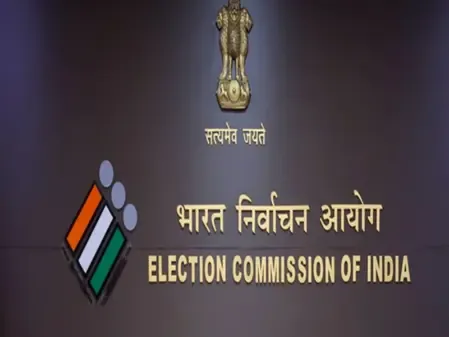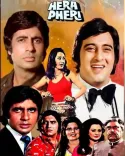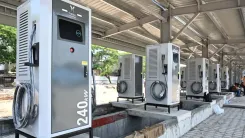Will the SC Address Petitions Against SIR in Bihar?
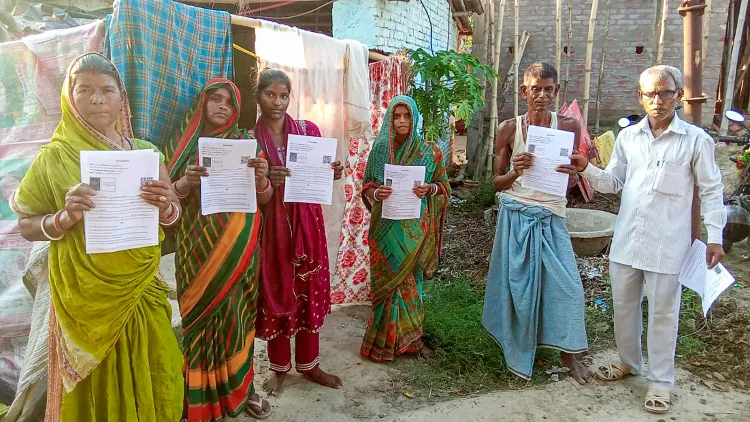
Synopsis
Key Takeaways
- Supreme Court to hear petitions on July 28.
- Special Intensive Revision (SIR) aims to improve electoral roll accuracy.
- Concerns about disenfranchisement of voters.
- Election Commission emphasizes the importance of electoral integrity.
- The decision could shape Bihar's democratic landscape.
New Delhi, July 27 (NationPress) The Supreme Court is set to consider a series of petitions on Monday that contest the Special Intensive Revision (SIR) of the electoral rolls in the upcoming Bihar elections.
According to the causelist available on the apex court's website, a panel comprising Justices Surya Kant and Joymalya Bagchi will continue the hearing on July 28.
In an affidavit presented to the Supreme Court, the Election Commission of India (ECI) reported that by July 18, they had already gathered enumeration forms from 90.12 percent (7.11 crore out of the 7.89 crore) voters in Bihar.
Considering factors such as “deceased individuals, permanently relocated voters, and those registered in multiple locations, the SIR's form collection phase has effectively reached 94.68 percent of the approximately 7.90 crore electorate in Bihar,” the commission informed the apex court.
The ECI stated that it initiated the SIT exercise, the only legally recognized method under the current legal framework for a thorough, bottom-up preparation of the electoral rolls, to enhance public trust and tackle issues like the presence of names of deceased individuals, relocated voters, and non-citizens in the electoral rolls.
The commission emphasized that the accuracy and integrity of the electoral roll are vital for democracy, and it has a constitutional obligation to maintain its purity.
During the previous hearing, the apex court urged the poll body to contemplate “in the interest of justice” whether documents like Aadhaar, Voter ID, and Ration Cards could be utilized for voter verification.
In an order issued on July 10, during a partial court working day, a bench led by Justices Sudhanshu Dhulia and Bagchi notified the Election Commission, noting that the petitions filed before the top court raised an “important question” that touches the core of the nation’s democratic framework.
The court framed three pivotal questions for consideration: Firstly, the authority of the ECI to carry out a special intensive revision of electoral rolls; secondly, the legality and appropriateness of the procedure utilized by the ECI; and thirdly, the timeline for executing SIR right ahead of the forthcoming Bihar Assembly elections in November 2025.
The group of petitions argued that if the ECI's decision from June 26, directing SIR, is not overturned, it could “arbitrarily” and “without due process” disenfranchise millions of voters from electing their representatives and jeopardize free and fair elections, which is a fundamental aspect of the Constitution.
According to the petitioners, there was no justification for the ECI to undertake such a “drastic exercise” of electoral roll revision in a state preparing for elections within a short timeframe.
Senior advocate Gopal Sankaranarayanan, representing the petitioning side, asserted that the ECI’s order mandating the SIR of electoral rolls in Bihar lacks a legal foundation since the revision process did not acknowledge Aadhaar Card and Voter ID Card for verification purposes.
The petition submitted by the Association for Democratic Reforms (ADR) contended that the revision initiative excluded identification documents like Aadhaar or ration cards, rendering marginalized communities (like SC, STs, and migrant workers) and the economically disadvantaged more susceptible to exclusion from the voting process.
“The documentary requirements of the directive, the lack of due process, and the unreasonably tight timeline for the Special Intensive Revision of Electoral Roll in Bihar further indicate that this exercise is bound to lead to the removal of names of millions of genuine voters from the electoral rolls, resulting in their disenfranchisement,” it stated.
The petition highlighted that the contested SIR order mandates the inclusion or retention of a voter's name in the electoral roll only upon submission of citizenship documents, including proof of citizenship of either or both parents. Failing this, the voter risks exclusion.
It also claimed that the ECI’s June 26 order is unlawful as it presumes a voter’s ineligibility unless proven otherwise through a limited list of 11 documents for self and documents of the mother or father, thus violating the Registration of Electors (RER) Rules, 1960.
Describing the petitions against the ECI’s June 26 decision directing SIR as “premature,” the ECI stated that the arguments raised in the petitions are wholly unsustainable.
“The claim of excluding any eligible voter based on suspicion is entirely unfounded and unsustainable. [T]he SIR exercise is inclusive, and every effort has been made by the ECI and its officials to ensure that no eligible elector is excluded from the electoral roll,” stated the poll body’s affidavit submitted to the top court, emphasizing that there are “multiple layers of checks at every stage of the process” and no elector's name will be removed from the electoral roll without following due process and adhering to the principles of natural justice.
The ECI asserted that it has a “special focus” aimed at marginalized individuals, the elderly, the poor, and the sick, to assist their enrollment as much as possible, including employing volunteers to obtain eligibility documents.
The Election Commission indicated that every voter who has submitted the enumeration form, with or without documents, will be included in the draft roll to be released on August 1. Additionally, any voter who has not managed to submit their enumeration forms can request inclusion in the final roll by submitting a claim in the designated form along with a declaration.
“Thus, anyone who is excluded from the draft roll has another chance to be included by submitting the form with a declaration and relevant documents. This claims period extends for another 31 days following the publication of the draft roll until September 1, 2025,” it stated.
Upon completion of the entire process, the final roll is set to be published on September 30, as per the ECI.
The ECI noted that even after the final roll's publication, new electors can be enrolled until the final date of nominations for the upcoming Bihar Assembly elections.
“This is a continuous process in every election to maximize inclusion. Any concerns regarding significant disenfranchisement are therefore misleading and unfounded,” the affidavit emphasized.
Furthermore, the poll body criticized the entirety of the petition challenging the SIR exercise, claiming it relies on newspaper articles and columns rife with misleading information, and suggested there has been a deliberate effort to distort the narrative against the SIR exercise and portray the poll body negatively.
“It is well-established law that newspaper articles do not represent reliable evidence regarding the facts they contain. This Hon'ble court has ruled that judicial notice of facts and figures mentioned in a newspaper cannot be taken as such, as these facts and figures are merely hearsay secondary evidence,” the affidavit concluded.
It urged that the newspaper articles cited by the petitioners to create a narrative of exclusion should be “discarded entirely,” asserting that such an unacceptable methodology should not receive any consideration from the Supreme Court.

